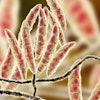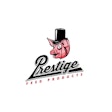The U.S. Food and Drug Administration has approved Monovet 90, the first generic monensin for use in cattle and goats for certain indications. While monensin is safe for cattle and goats when fed as directed, it is toxic and potentially lethal to horses at these levels, and overdoses in cattle, goats and other animals have occurred.
The FDA is reminding medicated feed mills that they must follow Current Good Manufacturing Practices (21 C.F.R. Part 225) to help prevent carryover of medicated articles into non-medicated feed. Some firms also are subject to the Food Safety Modernization Act’s Preventative Controls for Animal Food regulation, which requires them to identify likely hazards and develop written plans to control for those hazards. Guidance for Industry #235: Current Good Manufacturing Practice Requirements for Food for Animals and Guidance for Industry #72: GMPs for Medicated Feed Manufacturers Not Required to Register and be Licensed with FDA are two guidance documents that provide further explanation and examples of how to meet the FDA’s requirements for the safe manufacture of animal food.
Horses exposed to monensin may show a range of symptoms, including weakness, unsteady gait, inability to get up, diarrhea, abdominal pain, excessive urination, heart failure or death. Acute toxicity may progress rapidly enough that the horse doesn’t exhibit many symptoms prior to death. Monensin toxicity is rarely treatable, and the majority of horses die or are euthanized to avoid pain and suffering. Horses that survive monensin toxicity may suffer permanent damage to the heart or muscles and are unlikely to fully recover.
Monovet 90 is approved for use in:
- cattle fed in confinement for slaughter for: (1) improved feed efficiency; and (2) the prevention and control of coccidiosis due to the parasites Eimeria bovis and Eimeria zuernii;
- dairy cows for increased milk production efficiency;
- growing cattle on pasture or in dry lot for increased rate of weight gain and for the prevention and control of coccidiosis;
- mature reproducing beef cows for improved feed efficiency when receiving supplemental feed and for the prevention and control of coccidiosis;
- calves (excluding veal calves) for the prevention and control of coccidiosis; and
- goats maintained in confinement for the prevention of coccidiosis caused by the parasites Eimeria crandallis, Eimeria christenseni, and Eimeria ninakohlyakimovae.
Monovet 90 is safe for cows and goats when administered in feed; the meat and milk from cows and goats treated with Monovet 90 are safe for people to consume; the product does not pose any significant impacts to the environment; and any risks associated with administering the product can be mitigated by taking appropriate safety precautions, such as wearing protective clothing, impervious gloves and a dust mask. Monensin is an ionophore, which is an antimicrobial not used in humans; therefore, use of this drug does not raise antimicrobial resistance concerns.
Monovet 90 is a Type A medicated article and will be available over-the-counter in 25 kg bags. It is approved for use in the manufacture of Type B and Type C medicated feeds. Monovet 90 is manufactured by Huvepharma EOOD.

















